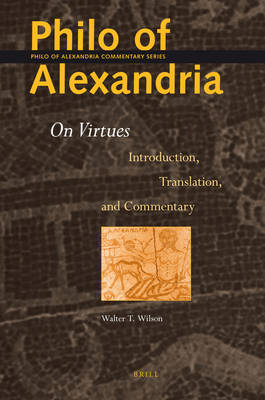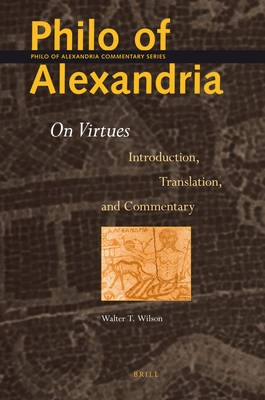
- Afhalen na 1 uur in een winkel met voorraad
- Gratis thuislevering in België vanaf € 30
- Ruim aanbod met 7 miljoen producten
- Afhalen na 1 uur in een winkel met voorraad
- Gratis thuislevering in België vanaf € 30
- Ruim aanbod met 7 miljoen producten
Zoeken
€ 352,95
+ 705 punten
Omschrijving
In the treatise On Virtues (part of his so-called Exposition of the Law), Philo of Alexandria demonstrates how Moses, his laws, and the nation constituted by these laws each embody certain widely-discussed moral values, specifically, courage (andreia), humanity (philanthropia), repentance (metanoia), and nobility (eugeneia). Although it makes extensive use of material drawn from the Pentateuch, what the treatise provides is far more than a commentary on scripture. Rather, it contributes to a sophisticated apologetic reconstruction of Jewish origins, idealized according to the principles of both Greek philosophy and Roman political culture. Guided by such principles, Philo endeavors to establish the moral, legal, and social status of Judaism within the Greco-Roman world.
Specificaties
Betrokkenen
- Auteur(s):
- Uitgeverij:
Inhoud
- Aantal bladzijden:
- 500
- Taal:
- Engels
- Reeks:
- Reeksnummer:
- nr. 3
Eigenschappen
- Productcode (EAN):
- 9789004189072
- Verschijningsdatum:
- 19/11/2010
- Uitvoering:
- Hardcover
- Formaat:
- Genaaid
- Afmetingen:
- 165 mm x 244 mm
- Gewicht:
- 793 g

Alleen bij Standaard Boekhandel
+ 705 punten op je klantenkaart van Standaard Boekhandel
Beoordelingen
We publiceren alleen reviews die voldoen aan de voorwaarden voor reviews. Bekijk onze voorwaarden voor reviews.








